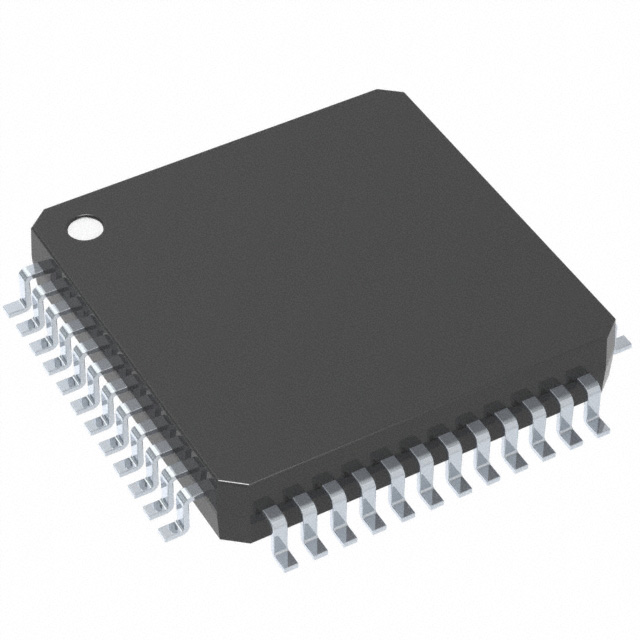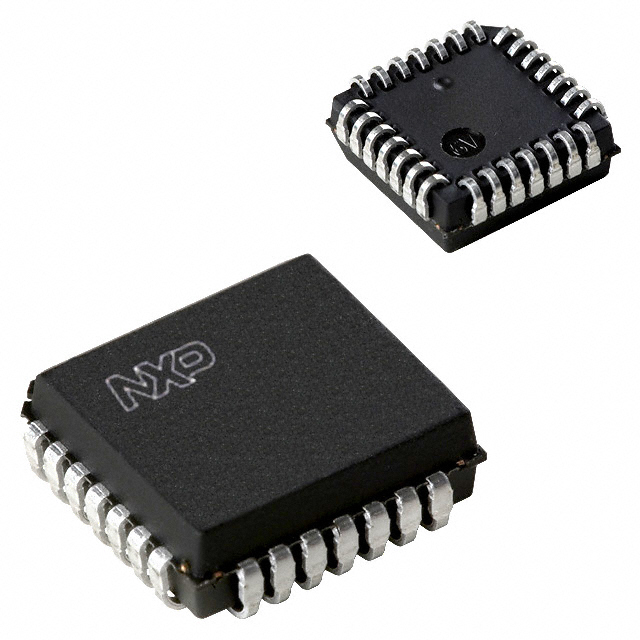AT32UC3C1128C-AUR
Manufacturer No:
AT32UC3C1128C-AUR
Manufacturer:
Description:
IC MCU 32BIT 128KB FLASH 100TQFP
Datasheet:
Delivery:





Payment:




In Stock : 0
Please send RFQ , we will respond immediately.









AT32UC3C1128C-AUR Specifications
-
TypeParameter
-
Supplier Device Package100-TQFP (14x14)
-
Package / Case100-TQFP
-
Mounting TypeSurface Mount
-
Operating Temperature-40°C ~ 85°C (TA)
-
Oscillator TypeInternal
-
Data ConvertersA/D 16x12b; D/A 4x12b
-
Voltage - Supply (Vcc/Vdd)3V ~ 5.5V
-
RAM Size32K x 8
-
EEPROM Size-
-
Program Memory TypeFLASH
-
Program Memory Size128KB (128K x 8)
-
Number of I/O81
-
PeripheralsBrown-out Detect/Reset, DMA, I²S, POR, PWM, WDT
-
ConnectivityCANbus, Ethernet, I²C, IrDA, LINbus, SPI, UART/USART, USB
-
Speed66MHz
-
Core Size32-Bit Single-Core
-
Core ProcessorAVR
-
DigiKey ProgrammableNot Verified
-
PackagingCut Tape (CT)
-
PackagingTape & Reel (TR)
-
Product StatusActive
-
SeriesAVR®32 UC3 C
The AT32UC3C1128C-AUR is a microcontroller chip from Microchip Technology. It belongs to the AT32UC3C series of microcontrollers, which are based on the 32-bit AVR UC3C architecture. Here are some of the advantages and application scenarios of this integrated circuit (IC) chip:Advantages: 1. High-performance Microcontroller: The AT32UC3C1128C-AUR offers a 66 MHz clock frequency and operates with a 1.65V to 3.6V supply voltage range. It provides a wide range of peripherals and interfaces suitable for various applications.2. Advanced Peripheral Set: This microcontroller chip offers several advanced peripherals, including SPI, I2C, UART, USB 2.0 Device, USB 2.0 Host, Ethernet MAC, and CAN-FD controllers. It also has a rich set of timers, including PWM (Pulse Width Modulation) controllers, and an analog comparator.3. Integrated Memory: The AT32UC3C1128C-AUR chip comes with 128 KB of Flash memory for code storage and 32 KB of SRAM for data storage. The Flash memory can be reprogrammed while the device is in operation, allowing for firmware upgrades and flexibility.4. Low-power Capabilities: This microcontroller chip offers various low-power modes, including Idle, Standby, and Sleep modes, which are useful for power-constrained applications. It also has a power-on reset and a brown-out detector to ensure reliable operation.Application scenarios: 1. Industrial Automation: The AT32UC3C1128C-AUR chip can be used in industrial automation applications due to its high-performance capabilities and robust peripheral set. It can control motors, sensors, and actuators, and can communicate with various industrial communication protocols like Ethernet and CAN-FD.2. Internet of Things (IoT) Devices: With its integrated USB and Ethernet capabilities, this microcontroller chip is suitable for IoT applications. It can connect to the internet, communicate with other devices or cloud services, and serve as a gateway or controller for various IoT nodes.3. Consumer Electronics: The AT32UC3C1128C-AUR can be utilized in consumer electronics products such as smart home devices, multimedia systems, and gaming peripherals. Its USB host and device capabilities allow it to interface with various external devices, while its high-performance core enables smooth operation.4. Medical Devices: The advanced peripherals and low-power capabilities of this microcontroller chip make it suitable for medical devices. It can be used in devices like patient monitors, diagnostic equipment, and portable medical devices, where reliability and power efficiency are crucial.5. Automotive Electronics: Since it supports CAN-FD, USB, and Ethernet, the AT32UC3C1128C-AUR is well-suited for automotive applications. It can be used in automotive control modules, infotainment systems, dashboards, and interfaces with external networks and devices.These are some of the advantages and potential application scenarios of the AT32UC3C1128C-AUR microcontroller chip. However, the choice of a microcontroller for a specific application should consider additional factors like cost, availability, and specific requirements of the project.
AT32UC3C1128C-AUR Relevant information
-

LM3S8538-IQC50-A2
Texas Instruments -

LM3S1937-IQC50-A2
Texas Instruments -

LM3S1637-IQC50-A2
Texas Instruments -

LM3S1635-IQC50-A2
Texas Instruments -

LM3S1332-IQC50-A2
Texas Instruments -

LM3S1165-IQC50-A2
Texas Instruments -

LM3S1162-IQC50-A2
Texas Instruments -

LM3S1133-IQC50-A2
Texas Instruments -

LM3S308-IQN25
Texas Instruments -

P89LPC936FA,529
NXP USA Inc.






